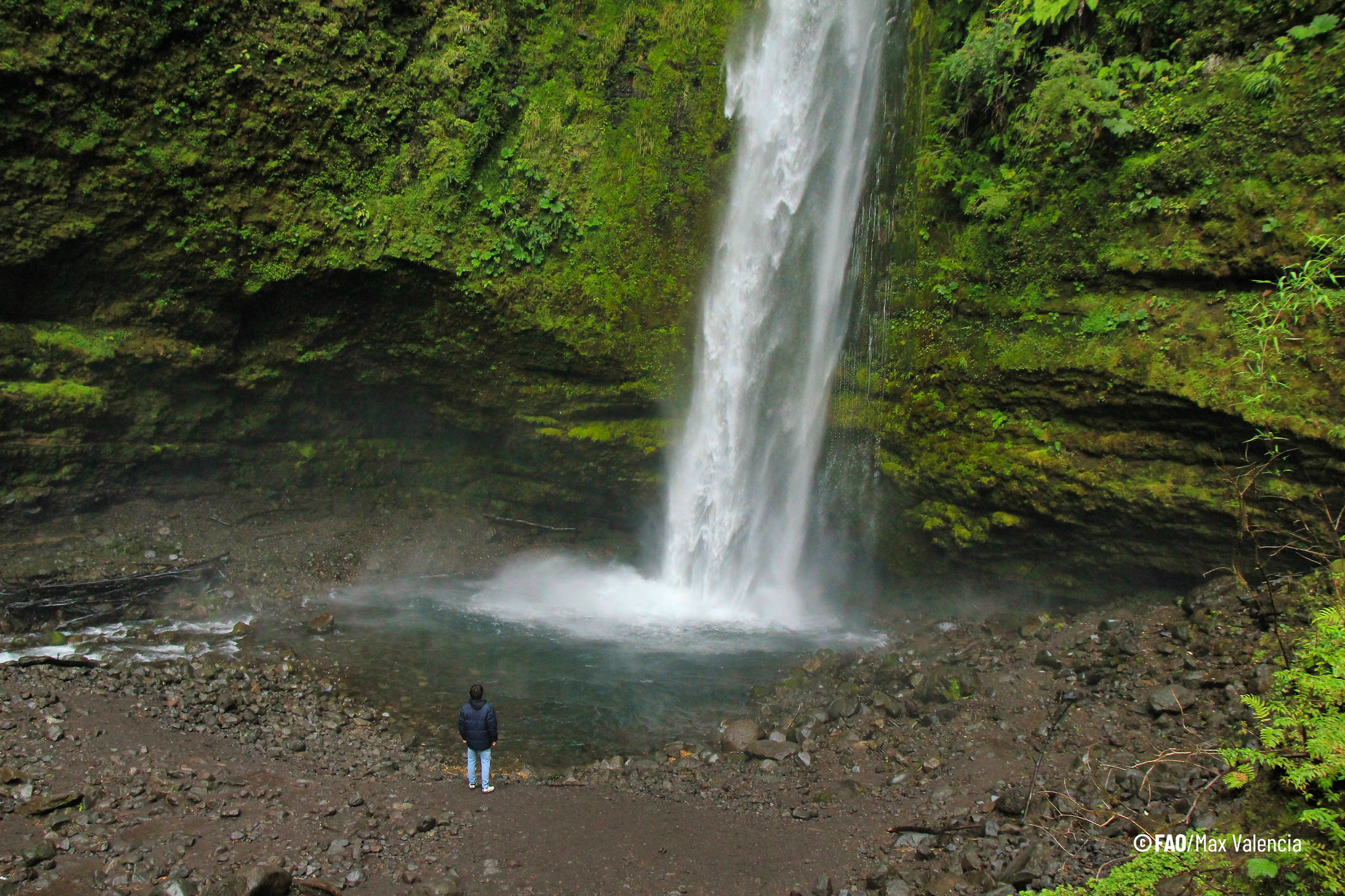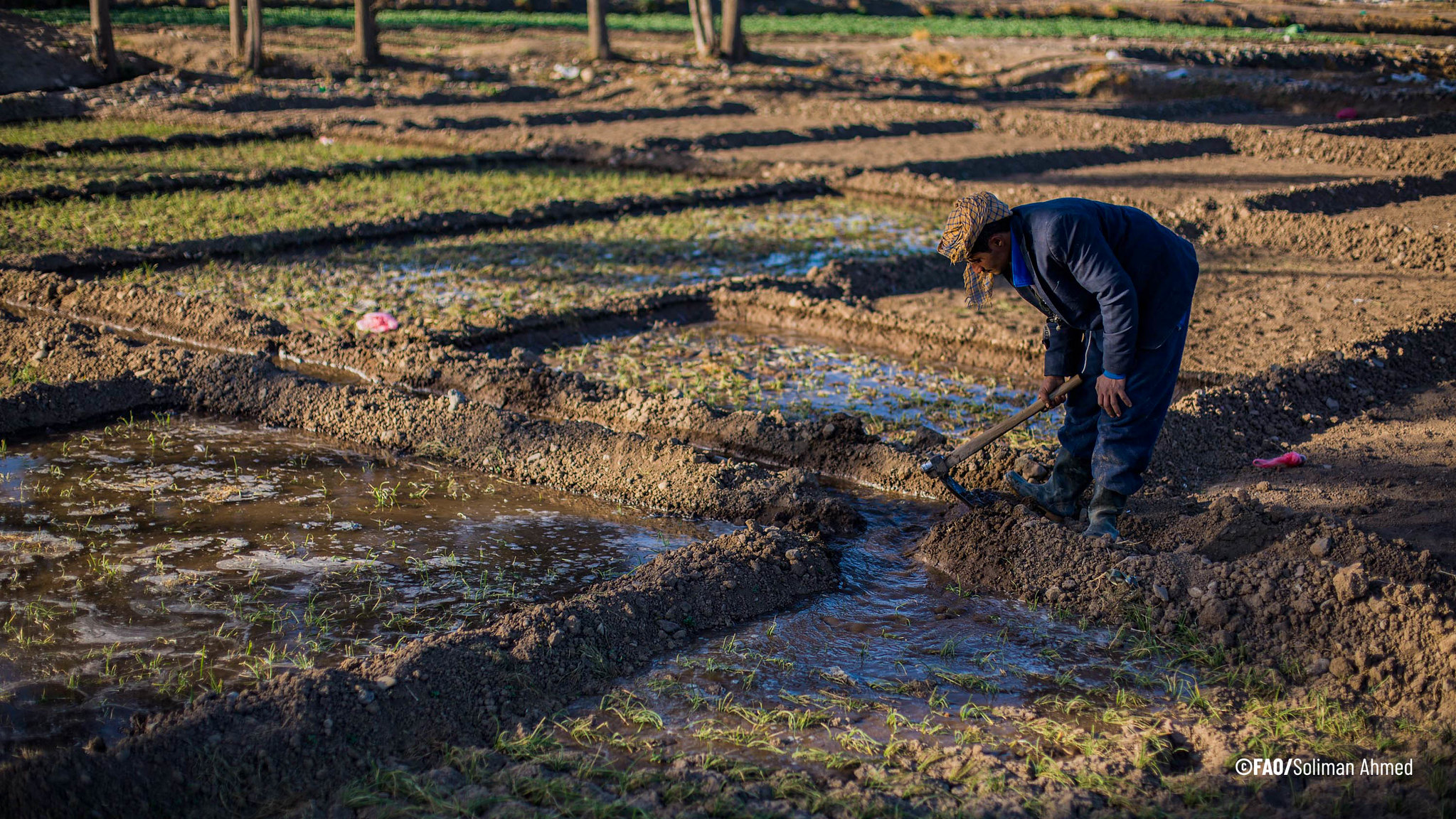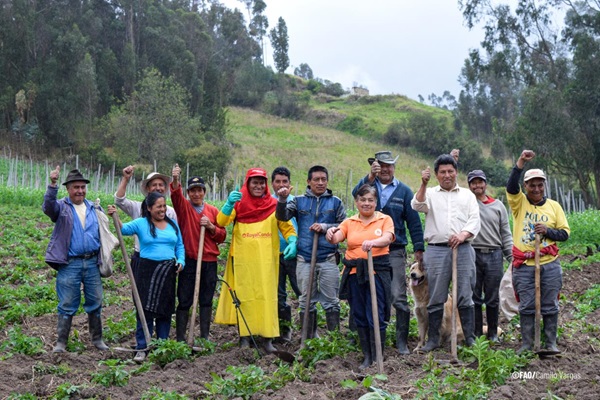
Sustainable Water Management in Latin America and the Caribbean
To feed 9 billion people by 2050, it will be necessary for agricultural production to increase by 50% and water consumption by 35%. It is estimated that by 2025, around 1.8 billion people will inhabit regions or countries with absolute water scarcity. Therefore, comprehensive sustainable water management is essential.
This implies advancing in management while considering biodiversity, lands, soils, forests, and the entire environment, including legal, cultural, and social aspects, with an ecosystem-based approach. FAO works with countries to ensure that water use in agriculture becomes more efficient, productive, equitable, and environmentally friendly.
Water Scarcity and Climate Change in Latin America and the Caribbean
Latin America and the Caribbean possess 34% of the total freshwater available worldwide. Considering the region's population, this represents an average of 28,000 m3 per person per year, four times more than the global average allocation.
Despite this region having the highest levels of precipitation, with an average of 1,600 mm per year, this distribution is not uniform. Spatial variability in precipitation, along with pronounced seasonality and increased demand in areas with high economic activity, results in regions suffering from water stress.
To this scenario, the impacts of climate change add up, affecting water demand for agriculture and potentially altering global production distribution. Recent reports from the IPCC indicate that climate change significantly impacts water security and foresee, among other impacts, a decrease in water productivity in crops, a reduction in surface water flows for irrigation originating from melting glaciers (which are melting at unprecedented rates), soil moisture loss and reduced CO2 absorption capacity, increased evaporation in sprinkler irrigation systems, drier and hotter crop surfaces, and overall greater variability in water availability for agriculture.
Furthermore, the frequency and severity of droughts and other water-related disasters have increased, putting the food security and livelihoods of farmers throughout the Latin America and the Caribbean region at risk.

Solutions
FAO provides technical assistance to countries in the region to advance towards integrated water resource management, including inclusive water governance and multidisciplinary approaches to integrated land management, considering soils and waters.
Additionally, the FAO Regional Office for Latin America and the Caribbean is working to help countries access financing sources and investment mechanisms that consider water infrastructure and rural water access. This includes investments in efficient irrigation systems (drip irrigation, micro-sprinklers, precision irrigation), water reuse in a circular economy context, the application of digital technologies for crop cycle planning and irrigation, rainwater harvesting, and the use of ancestral practices for water planting and harvesting.
Some examples of FAO's work with countries to achieve better integrated water management include:
- In Chile, strengthening climate change policies and action plans in the water sector.
- In Uruguay and Brazil, supporting countries in improving capacities and binational coordination for integrated water management in the Laguna Merín Basin through the development, agreement, and implementation of a Strategic Action Program.
- In the Amazon, Chaco, and the Andes, supporting communities in addressing drought and implementing efficient water collection, storage, and use practices in agriculture.
- In the Central American Dry Corridor, supporting the implementation of anticipatory actions based on drought forecasts, enabling 7,500 people in El Salvador, Guatemala, and Honduras to improve their water collection and storage capacities, strengthen their productive capacities, and transform their agricultural and livestock livelihoods into more resilient systems.
- In Bolivia, supporting communities in increasing climate resilience through integrated water management in the watershed approach and the implementation of efficient irrigation systems.
- FAO's commitments at the 2023 World Water Conference include supporting states in developing national water roadmaps, promoting global dialogue on water tenure, and strengthening countries' capacities for monitoring, reporting, and analyzing SDG 6.4.1 and 6.4.2, which pertain to more efficient resource use and reduced water stress
For more information please visit this link: National Water Roadmaps towards the 2030 Agenda.
Related News

FAO launches a call to propose Sessions for the Exchange of Experiences and Knowledge on Family Farming within the framework of the Regional Technical Platform on Family Farming
13/06/2022
Flickr Gallery
Contact
Officer, Regional Initiative for Sustainable and Resilient Agriculture
Sustainable Water Management Specialist
Communications Consultant for the Regional Initiative on Sustainable and Resilient Agriculture
FAO Regional Office for Latin America and the Caribbean




